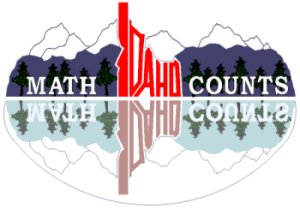|












| |
The next edition of the
ISPE Friday Update will be 12/01/06. Have a safe and happy Thanksgiving!
Idaho Society of Professional Engineers
Friday Update 11/17/06
UPCOMING EVENTS:
December 5, 2006
ISPE Southwest Chapter
Noon Meeting (Please note that this is a change from the usual meeting
date. The November and December meetings are being combined for this meeting.)
February 5, 2007 Deadline for
submissions of 2007 ISPE Award
Nominations
February 6 10, 2007
Idaho Society of Professional Land
Surveyors Conference - Coeur d' Alene Casino - Worley, Idaho
March 10, 2007 State
MATHCOUNTS Competition
Boise State University, Boise
March 22 & 23, 2007
ISPE 2007 Annual Meeting
Oxford Suites, Boise
May 11, 2007 National
MATHCOUNTS Competition
Convention Center, Fort Worth, Texas
CALL FOR ISPE AWARD NOMINATIONS
Each year ISPE selects outstanding Idahoans in recognition of their engineering
accomplishments and contributions to the engineering profession. Awards will be
presented during the 2007 Annual Meeting in Boise. Nominations must be submitted
no later than February 5, 2007. Award criteria and nomination forms can
be obtained from the ISPE web site,
or by contacting the ISPE office at 208-426-0636.
The awards for which we are looking for nominees include:
Idaho Engineering Hall of Fame: Given by ISPE to recognize
Idahoans that have made engineering contributions beyond Idaho i.e. nationally
or world wide.
Idaho Excellence in Engineering Award:
To recognize an Idahoan who is distinguishing themselves in engineering.
Idaho Excellence in Engineering Educator Award:
This award recognizes an Engineering Educator who has had a significant impact
on the engineering profession in Idaho.
Young Engineer of the Year Award: To
recognize an engineer that is making a contribution to their profession. Must be
no more than 35 years old.
Self nominations are welcomed and encouraged.
ENGINEERING KIDS SHOW
Beginning during EWeek 2007, PBS will be
airing Design Squada
new reality TV show where high-school students compete to design and build
machines and gizmos.
HOTLINE
FOR MEMBERS
Are you an NSPE member with a question about engineering
licensure, ethics, or law? If so,
call 888-384-4295 or
e-mail. Please provide your 9-digit NSPE member number. For all other
questions please call 888-285-6773

MATHCOUNTS PROBLEM OF THE
WEEK
Can you solve this MATHCOUNTS problem? The answer will appear in next week's
edition of the Friday Update!
The 110th US Congress
The United States House of Representatives has 435 seats. A political party has
majority control of the House of Representatives if 218 seats belong to the
party. In the second session of the 109th Congress, the Republican Party
controlled 229 seats and the Democratic Party controlled 201 seats. One seat was
held by an independent representative and 4 seats were vacant. Assuming the
Democratic Party kept control of the 201 seats they had, what was the minimum
whole percent of the remaining seats, the Democratic Party needed to win in the
November 7, 2006 election to have at least 218 seats in the House of
Representatives?
________________________________________
The United States Senate has 100 seats. A political party has majority control
of the Senate if 51 seats belong to the party. As of November 5, 2006, the
Republican Party had 55 seats and the Democratic Party had 44 seats. One seat
was held by an independent senator. There were 33 senate seats to be voted on in
the November 7, 2006 election. The Republican Party controlled 16 and the
Democratic Party controlled 17 of those seats. Assuming the Democratic Party
kept control of the 17 seats they had, what was the minimum whole percent of the
remaining seats the Democratic Party needed to win in the election to have at
least 51 seats in the Senate?
________________________________________
The ratio of Republican representatives to Democrat representatives was 229:201.
There exists a least prime factor a of 229 and a least prime factor b of
201. What is the value of a × b ?
________________________________________
Suppose that after the election the ratio of Republican representatives to
Democrat representatives is (229 − x) : (201 + x). Additionally assume there
exists a least prime factor a of (229 − x) and a least prime factor b of
(201 + x) such that a × b is 25. What is the least possible value of x?
Answer to last weeks MATHCOUNTS problem:
|
Date |
Number of leaves falling |
Total Number of leaves |
|
Oct 29 |
7 |
7 |
|
Oct 30 |
49 |
56 |
|
Oct 31 |
343 |
399 |
|
Nov 1 |
2401 |
2800 |
|
Nov 2 |
16,807 |
19,607 |
|
Nov 3 |
117,649 |
137,256 |
|
Nov 4 |
823,543 |
960,799 |
|
Nov 5 |
5,764,801 |
|
The last leaf will fall on Nov 5.
________________________________________
She has 1,000,000 grams of leaves to put into bags that each hold 50 pounds.
There are 454 grams per pound. Divide 1,000,000 by 454 to find the number of
pounds of leaves. 1,000,000 ÷ 454 = 2202.64 pounds. Divide the number of pounds
by 50 pounds per bag to find the number of bags Anna needs 2203 ÷ 50 = 44.06.
Anna needs 45 bags to bag all of the leaves.
________________________________________
The 1,000,000 leaves weigh 1,000,000 grams. Since each leaf gains 10 times its
dry weight, the weight of the leaves increases by 10,000,000 grams. The total
weight of the wet leaves is 1,000,000 + 10,000,000 = 11,000,000 grams.
11,000,000 ÷ 454 grams/pound = 24,229. Expressed to the nearest 10 the weight of
the wet leaves is 24,230 pounds.
An alternate solution: From the previous problem you know that the original
weight of the 1,000,000 leaves is 2204.64 pounds. This total is increased by
22,026.4 pounds (ten times the original weight, and the total weight is 2202.64
+ 22,026.4 = 24,229.04 or 24,230 pounds to the nearest 10.
________________________________________
Make a simpler problem. Try similar squares. If the perimeter of square II is
1.5 times as long as the perimeter of square I, then each side length of square
II is 1.5 times as long as each side length of square I. Let x represent the
side length of square I. Then the side length of square II is 1.5x. The area of
square I is (x) × (x) = x2. The area of square II is 1.5x × 1.5x = 2.25 x2. The
area of square II is 2.25 times the area of square I. For any pair of similar
figures the same reasoning holds true. Each length in leaf II is 1.5 times the
length of the corresponding part of leaf I. Squaring the scale factor from leaf
I to leaf II gives the area of leaf II in terms of the area of leaf I, so the
answer is 1.52 = 2.25.
If you want to see last week's problem again, click
http://www.mathcounts.org/webarticles/anmviewer.asp?a=927&z=107
Idaho Society of Professional Engineers
PO Box 170239
Boise, ID 83717-0239
208-426-0636
Fax: 208-426-0639
E-Mail: ispe@idahospe.org
Web Site: www.Idahospe.org
| |

ISPE
MATHCOUNTS
Program

National Engineers Week - Future City Competition

Board of Professional Engineers and
Professional Land Surveyors
--News
Bulletins
--Meeting
Minutes


|
 Idaho
Society of Professional Engineers
Idaho
Society of Professional Engineers